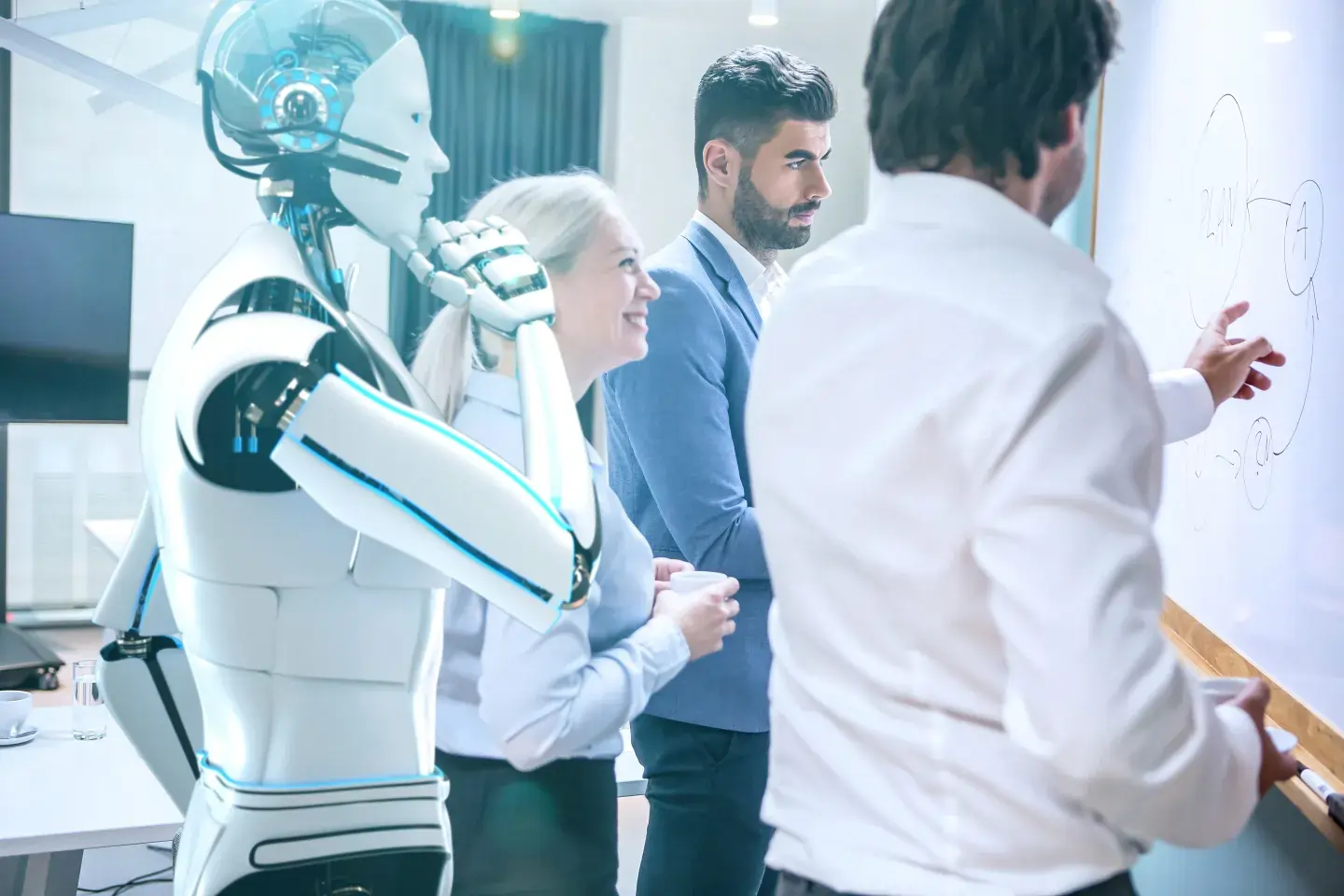Agents to Automate Workflows: The New Era of Intelligent Work

For years, businesses have looked to technology to streamline repetitive tasks, cut down on errors, and improve efficiency. From spreadsheets to macros to robotic process automation (RPA), every generation of tools has pushed organizations one step closer to smoother operations. But in 2025, a new approach is emerging that changes the game entirely: AI agents to automate workflows.
Unlike static automation, which runs scripts and rules, AI agents are intelligent, adaptive, and capable of acting with autonomy. They do not just follow instructions, they understand goals, coordinate across platforms, and drive outcomes with minimal human intervention. This shift is enabling organizations to move from simply automating tasks to creating self-running, intelligent workflows.
What Does It Mean to Use Agents to Automate Workflows?
At the most basic level, automation has always been about reducing repetitive labor. But agents bring something new to the table: intelligence.
An AI agent is more than a script. It is a digital teammate that can:
- Interpret objectives such as “prepare next week’s client status update.”
- Break the objective into smaller tasks like gathering files, drafting slides, and sending reminders.
- Execute those tasks across tools like Microsoft, Google, Slack, or CRMs.
- Adapt when conditions change, such as when a client delays feedback.
This turns workflows from rigid pipelines into living systems that can adjust, evolve, and deliver results on their own.
Why Traditional Automation Falls Short
Most companies already use some form of automation. But traditional methods are limited.
- Rigid Rules: If one input changes, the entire process breaks.
- Tool Silos: Automations usually live within one application and do not extend across platforms.
- No Context Awareness: Automations execute commands but do not understand the “why” behind them.
- Constant Maintenance: IT teams must constantly update scripts to keep up with changing needs.
This is where workflow agents come in. They are not brittle or confined to one platform. They are adaptive, context-aware, and scalable.
Key Benefits of Using Agents to Automate Workflows
a)Scalability Without Complexity
Agents can manage workflows across departments without requiring constant reconfiguration.
b) Operational Resilience
When inputs change or systems shift, agents adapt in real time instead of breaking.
c) Time Savings
Employees no longer spend hours chasing updates or managing handoffs. Agents coordinate automatically.
d) Accuracy and Compliance
By following set rules and logging every action, agents reduce human error while staying audit-ready.
e) Employee Empowerment
With repetitive work offloaded to agents, employees focus on strategy, creativity, and innovation.
How to Start Automating Workflows with AI Agents
Organizations often wonder how to begin. Here is a simple three-step process to introduce AI agents effectively.
Step 1: Identify Repetitive, Multi-Step Workflows
Look for processes that require coordination across multiple people or tools. Examples include expense approvals, onboarding, or campaign launches.
Step 2: Define Goals Instead of Rules
Instead of thinking in terms of “if this, then that,” define the outcome. For example, “make sure all new hires are fully onboarded by their first day” or “prepare weekly financial reports.”
Step 3: Deploy Agents with Oversight
Start by letting agents handle portions of the workflow while humans review. As confidence builds, scale them to handle end-to-end execution with human escalation only when necessary.
This phased approach ensures smooth adoption while maintaining trust.
Common Use Cases for Workflow Automation with Agents
- Project Management – Agents assign tasks, track deadlines, and escalate delays automatically.
- Customer Support – From triaging tickets to suggesting resolutions, agents reduce response times and increase customer satisfaction.
- Finance Operations – Agents process invoices, flag anomalies, and ensure compliance without requiring manual checks.
- HR and Onboarding – Agents coordinate training, provision accounts, and schedule check-ins for new hires.
- IT and DevOps – Agents monitor system health, deploy patches, and escalate issues to engineers when needed.
These are not just one-off automations. They are end-to-end workflows that run with intelligence.
Comparing Burai to Other Workflow Automation Options
Many platforms claim to automate workflows. But most stop at the level of task execution. They require users to build rigid rules, which means they break when real-world conditions shift.
Burai takes a different approach.
- Workflow Mapping: Burai learns how teams actually work instead of forcing them into predefined templates.
- Agent-Led Execution: Burai agents do not just automate. They interpret objectives, reason through priorities, and act across multiple systems.
- Cross-Platform Integration: Burai works seamlessly with Microsoft, Google, CRMs, and enterprise apps.
- Governance and Security: Every action is logged and monitored, giving enterprises confidence that agents act responsibly.
Where others provide static automation, Burai delivers adaptive, agentic workflows that grow with the organization.
The Human Impact of Agents in Workflow Automation
Technology is only as valuable as the change it brings to people’s lives. Agents that automate workflows create significant human benefits:
- Less Burnout: Employees spend less time on low-value tasks like scheduling and updating spreadsheets.
- Greater Collaboration: With agents managing handoffs, teams can focus on collaboration and problem-solving.
- More Innovation: Freed from administrative overhead, employees can dedicate time to strategic initiatives.
In many organizations, introducing workflow agents has boosted morale as much as it has improved efficiency.
Practical Example: A Marketing Campaign with Agents
Imagine launching a new product campaign. Traditionally, marketing managers would juggle emails, track deadlines, update the CRM, and coordinate with sales.
With agents:
- The agent drafts a project timeline and assigns tasks in the project management tool.
- It monitors progress and sends nudges to stakeholders when deadlines approach.
- It updates campaign results in real time, syncing data across CRM and analytics dashboards.
- It escalates to the manager only when approval or decision-making is needed.
The result is not just a faster campaign launch, but a smarter, more coordinated effort across departments.
Challenges and Considerations When Using Agents
Like any technology, deploying agents to automate workflows comes with considerations.
- Change Management: Teams must trust agents to handle tasks they once owned.
- Data Security: Agents must operate within strict compliance and security guidelines.
- Governance: Oversight mechanisms must ensure agents act responsibly.
The key is to choose a platform, like Burai, that prioritizes security, transparency, and control.
The Future of Workflow Automation with Agents
The trajectory is clear. Workflows are becoming too complex for rigid automation. Businesses need systems that can think, adapt, and execute.
In the next few years, we will see:
- Hybrid Work Models: Humans and agents collaborating seamlessly across workflows.
- Industry-Specific Agents: Tailored to finance, healthcare, manufacturing, and more.
- Agent Ecosystems: Multiple agents working together, coordinating across departments.
Organizations that embrace this shift now will not just improve efficiency. They will future-proof their operations.
Final Thoughts: Agents Are the Next Frontier of Workflow Automation
Automation once meant running scripts to reduce repetitive work. Today, agents to automate workflows represent the next frontier. They are not rigid, they are intelligent. They do not just execute, they adapt. And they do not just assist, they act.
Burai is leading this transformation by bringing together workflow mapping, cross-platform execution, and governance into one intelligent system. For organizations ready to move beyond brittle automation, Burai’s agents provide a smarter, more resilient way forward.
💡 Ready to see how Burai agents can automate your workflows? Request a demo today and experience the future of intelligent work.



